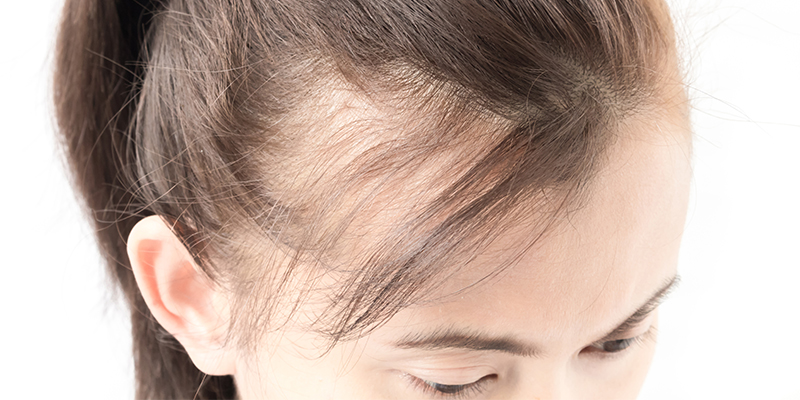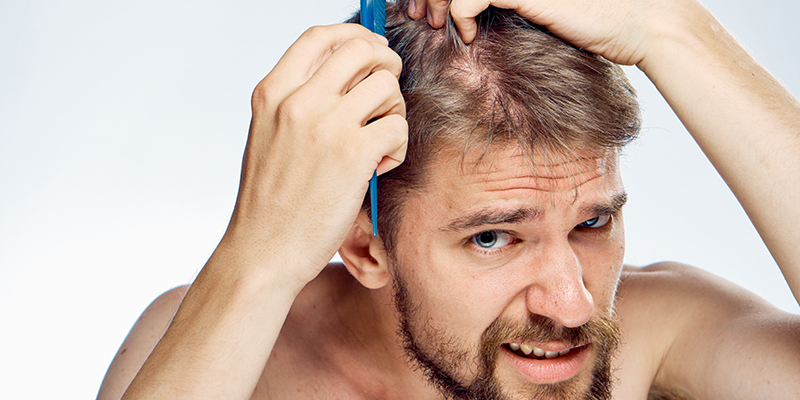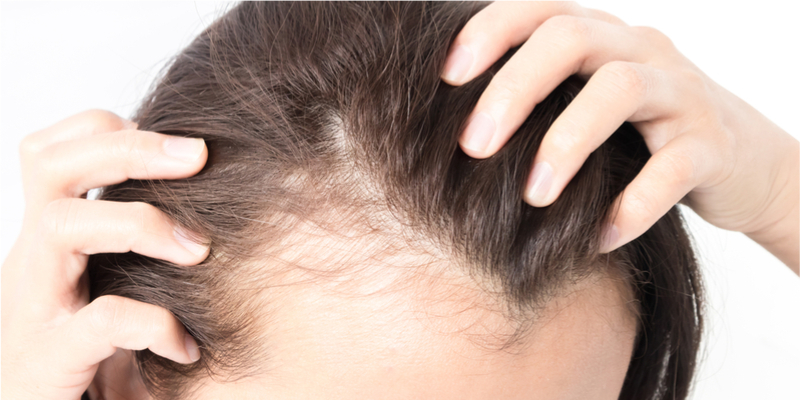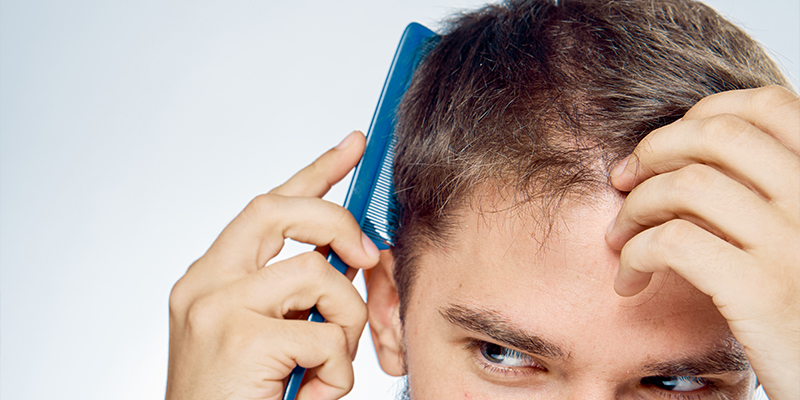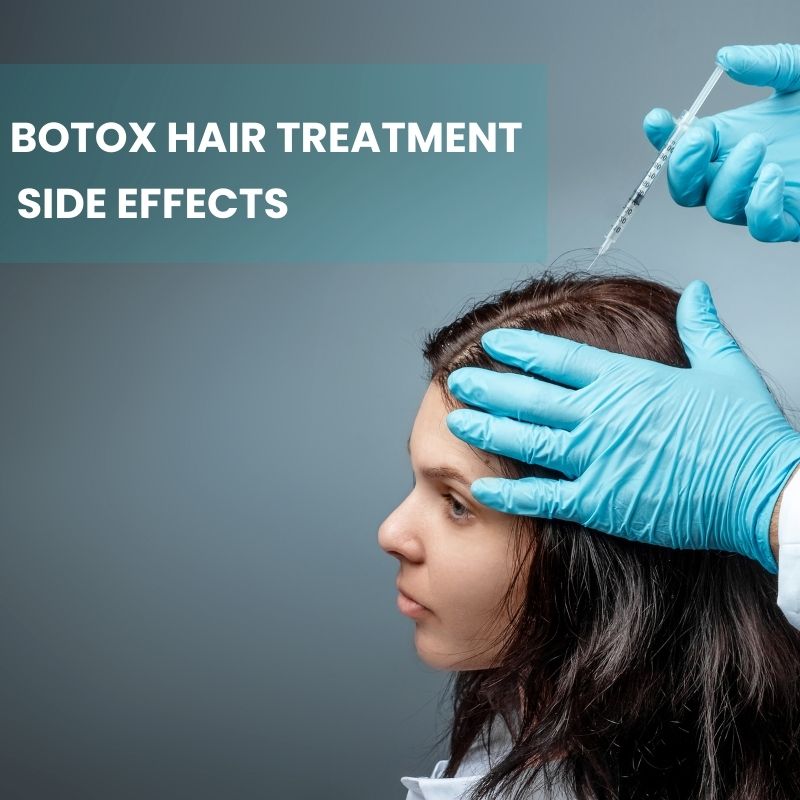Lupus And Hair Loss – Treatment And Prevention
If you have lupus, a chronic autoimmune condition that causes antibodies to attack healthy tissue and you are experiencing hair loss, gradual thinning or excessive hair breakage; then there are chances that both the concerns are related. Find out more about lupus-related hair loss in this article.
Does Lupus Cause Hair Loss?
It is not necessary that everyone, diagnosed with lupus, experiences hair loss or fall. However, more than 50% of the people affected by the condition experience hair changes during the course of the disease. The clinical presentation of the scalp condition helps us make a clear distinction and determine whether hair loss is due to lupus or any other factor. Hair loss often occurs in the early stages of the disease and broadly, it is of two types – scarring and non-scarring.
- Scarring or discoid lupus hair loss causes lesions or sores to develop anywhere on the body that damage hair follicles and lead to permanent hair loss unless treated in the early stages.
- Non-scarring hair loss does not cause irreversible damage to hair follicles. It may cause inflammations anywhere on the body, including the scalp, eyebrows, beards and eyelashes, which may lead to hair breakage or reversible hair loss.
What Are The Symptoms Of Lupus-Related Hair Loss?
Hair loss signs and symptoms are highly variable amongst individuals affected with lupus and sometimes can be challenging to identify. So it is necessary to make the correct diagnosis before treating the condition. Here are different patterns of hair loss or fall that occur due to lupus –
- You may have non-scarring hair loss, which is either diffused or localised.
- If you have patches of hair loss, it may be a scarring hair loss condition.
- You may note redness and swelling in some areas of the scalp.
- Your hair may become brittle and fragile. You may notice a ragged appearance of the hairs along the hairline or edges of the scalp, known as lupus hair.
- Hair loss may spread to other areas of the body, including the eyelashes, eyebrows and beard.
- Gradual hair thinning may occur, or you may experience hair loss in clumps or a diffused hair fall.
Hair loss may lead to the appearance of small round bald patches.
Is Hair Loss Due To Lupus Reversible?
The extent and type of hair loss depend upon the severity of lupus. Early diagnosis of the condition is critical as it can help prevent irreversible damage. It is possible to recover the lost hair growth due to lupus once the disease is under control; provided that there is no occurrence of irreversible scarring. Notably, in the case of systemic lupus, the hair often regrows back in areas with no scarring.
How To Treat Lupus-Related Hair Loss?
Standard treatment for lupus-related hair loss begins with addressing the underlying cause by managing the symptoms. The following options help treat this type of hair loss effectively–
1) Medical Treatment – Dermatologists prescribe immunosuppressants to manage the hair loss symptoms and control the disease. Also, doctors may advise the use of antimalarial medication, e.g. chloroquine and hydroxychloroquine, to reduce lupus flareups. Remember, it is essential to avoid the use of over the counter medicines without consulting your dermatologist. In some cases, the medications can also worsen the hair fall. However, you can reverse the hair loss by discontinuing the use of the specific medicine.
2) Trigger Management – Certain triggers like stress, fever and lack of proper nutrition can worsen your lupus-related hair fall. It is crucial to identify possible triggers and manage them accordingly.
3) Hair Supplements – Doctors may prescribe hair supplements to combat nutritional deficiencies. Since some hair supplements may interfere with specific medication, it is best to consult your dermatologist before taking them.
4) Hair Transplantation – This is an advanced surgical procedure recommended for people suffering from a severe form of scarring hair loss due to lupus. The invasive treatment helps reverse scarring hair loss due to cutaneous lupus by taking hair follicles from one area of the body and implanting to the bald areas of the scalp. However, your hair transplant surgeon may consider performing the procedure only when the lupus condition is under control, and there is no active hair loss or disease activity for at least six months to one year.
Also Read: PRP Therapy: Promising Non-Surgical Treatment for Hair Loss
How To Prevent Lupus Hair Loss?
Here are five simple tips to prevent, manage and cope with hair loss caused by lupus –
1) Avoid sun exposure – It is essential to protect yourself from UV exposure by wearing a good quality sunblock on the sun-exposed areas of the body and a hat to protect your scalp while stepping outdoors to avoid lupus flareups.
2) Increase your nutritional intake – Consuming a healthy and nutritious diet is vital to manage lupus and reduce the severity of hair loss. Include plenty of fruits and vegetables in your meal plans.
3) Manage stress – Overcome stress by exercising and practising meditation to avoid lupus flareups.
4) Follow a regular hair care regimen – Use a mild shampoo and keep your fragile hair hydrated by using leave-in conditioners.
5) Avoid excessive styling – Protect your hair from breakage and thinning by avoiding chemical treatments, use of heat styling products and frequent brushing.
Consulting an experienced dermatologist for an accurate diagnosis is the first step to treating lupus-related hair loss effectively. Fortunately, it is possible to restore healthy hair growth and avoid permanent hair loss with the right medication and proper disease management. If you are suffering from acute hair loss, seek the advice of an experienced dermato-trichologist at Oliva Skin & Hair Clinic today and prevent permanent hair damage!
Our certified subject matter experts do extensive research and collate facts from reputed scientific journals and international studies to create informative and engaging articles related to all your dermatology concerns. They strive to help you decipher medical jargon, distinguish fact from fiction and overcome paranoia. Our qualified medical board or expert panel goes a step further to verify these facts based on their rich academic knowledge, vast clinical experience and critical industry insights to ensure you consume only medically accurate content that empowers you to make informed decisions about your hair and skin-care treatments and weight management. Check out our Editorial policy for further details
https://www.ncbi.nlm.nih.gov/pmc/articles/PMC3351863/https://www.ncbi.nlm.nih.gov/pmc/articles/PMC1459118/
https://www.ncbi.nlm.nih.gov/pmc/articles/PMC3937495/




